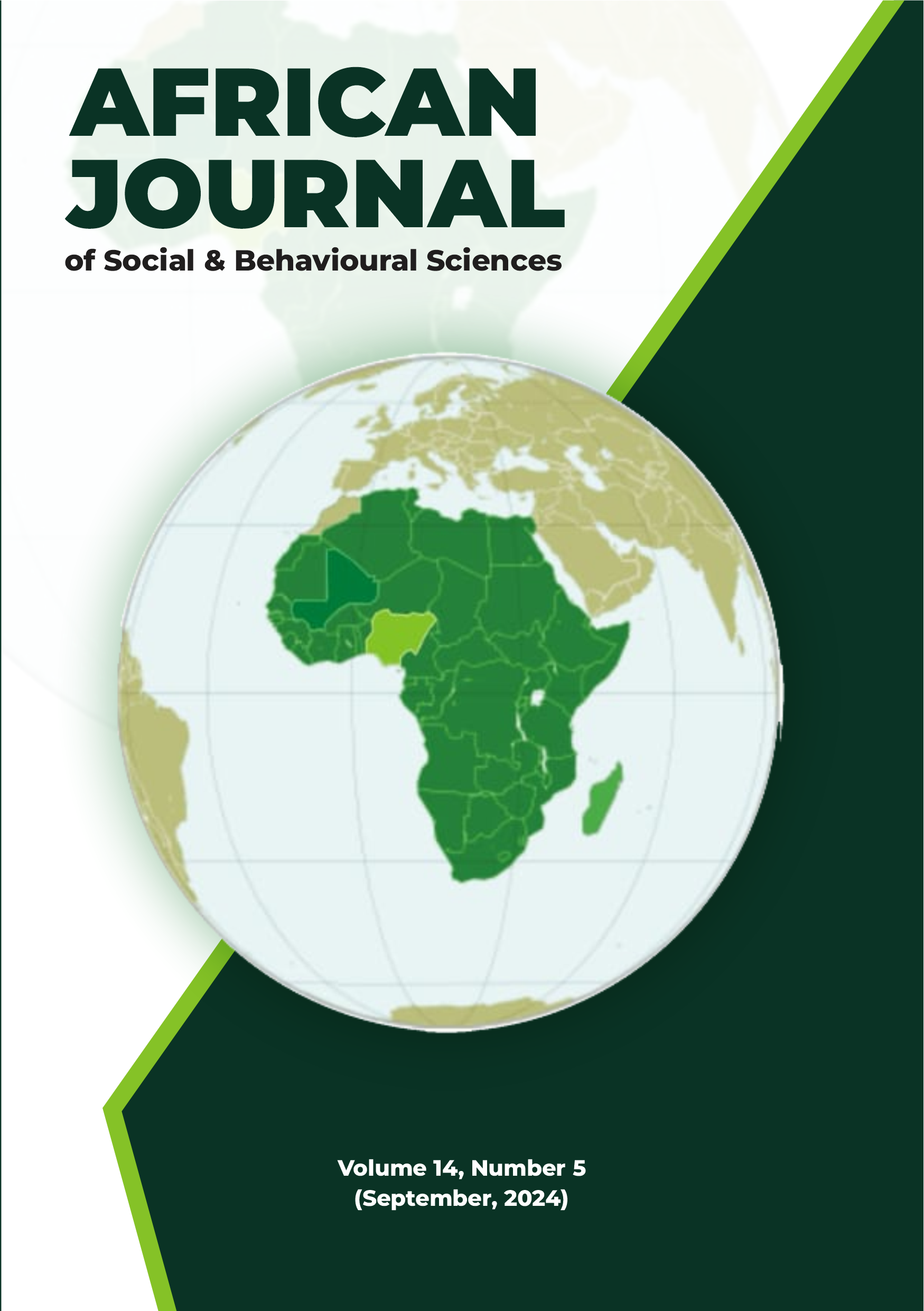IMPACT OF PROPERTY CRIME ON SOCIOECONOMIC AND PSYCHOLOGICAL WELL-BEING OF VICTIMS IN WUKARI LGA OF TARABA STATE, NIGERIA
Keywords:
Property Crime, Post-Traumatic Stress Disorder, Victims, VictimisationAbstract
Crime has registered its presence across society, thus depositing varying
proportions of effects on victims. As crime exerts its toll on socioeconomic and psychological
states of victims, it becomes expedient to interrogate its forms; and the level of damage it has
caused to victims. This study aimed to assess the effects of property crime victimisation on
victims’ socioeconomic and psychological conditions in the Wukari LGA of Taraba State.
The objectives of the study were to assess the effect of property crime victimization on the
socioeconomic condition of victims and to ascertain the effect of property crime victimization
on post-traumatic stress disorder of victims. The survey design was adopted for the study.
Questionnaires were used to collect primary data. The Cochran sample size determination
formula was used to generate 385 samples. A multi-stage sampling technique was used to
select respondents across clusters of settlements to complete the questionnaire. At the
descriptive level, simple frequencies and percentages were used. Additionally, inferential
statistics such as Chi-square tests and ANOVA were used to test the research hypotheses. The
descriptive review revealed that, burglary crime was the most perpetuated form of property
crime. Victims of property crime faced social, economic and psychological challenges.
Poverty and financial loss, decreased investment, difficulty in forgetting scenes of attack and
the development of intrusive memory, negative thinking and mood were devastating. The chi-
square results (X 2=22.373, 12, P<.05) revealed that; property crime had a significant effect
on victims’ socioeconomic status. Additionally, the ANOVA results revealed a significant
effect of property crime on insomnia [F (3, 371) =3.704, P=0.012] and the loneliness and
avoidance attitudes of victims [F (3,371) =2.849, P=0.037]. The study recommended
financial and material compensation for victims of property crime, including counselling,
improved security of lives and property and institutional measures to reduce unemployment
and breach the poverty gap so that perpetrators of property crime would be kept at bay.


